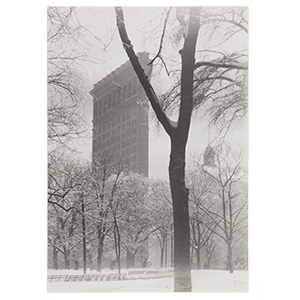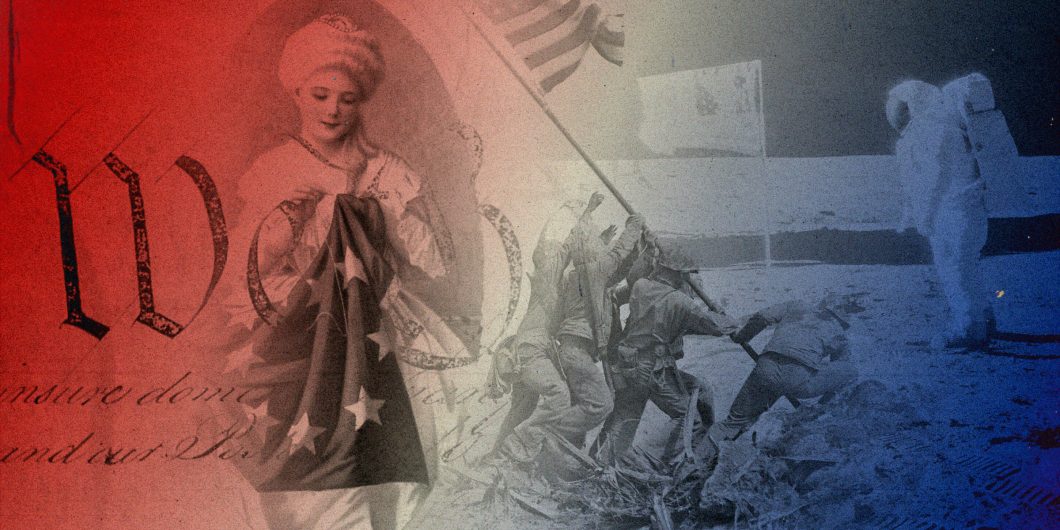Underlying the Left's struggles is a realignment of politics away from the economic conflicts of the 20th century toward the cultural battles of the 21st.
The Reality of Shared Stories
It’s customary for authors to respond to their critics in a forum such as this one with an expression of gratitude. One occasionally feels that the thanks is offered somewhat less than sincerely, with teeth gritted. But not in this case. I am genuinely grateful for these highly intelligent and engaged responses, all of which take up what I have written in a thoughtful and generous way. Moreover, they all take seriously the dilemma to which I’ve tried to address myself. These three men are all truth-seekers, and I am very happy to find myself in their company. Moreover, I believe we’re in agreement about the fundamental need for some shared sense of the national story—and not merely principles or propositions—to make possible the cohesion of the nation. The question is how to understand that need, and how to bring ourselves closer to satisfying it. I think those who read through the whole Forum start to finish, including (I hope) this response, will come away with a sense that their understanding has been genuinely advanced.
Let me also admit, although I know that it makes for less page-turning drama to say so, that I agree with most of what they have said.
My colleague Richard Gamble is absolutely right to insist that there is danger in this enterprise. He has, as he mentions, devoted a good deal of his scholarly energies over the years to the criticism of flawed and distorting stories about the American past, and he knows better than most of us how great the damaging effects of a mistaken story can be. I also think he’s right to say that America has never had a “single unified story.” And he’s right to emphasize that it is particularly incumbent upon Christians not to mistake any secular story or stories for the Christian one, whose importance must transcend any such earthly tale. As Richard Neuhaus used to say, the first thing to know about politics is that politics is not the first thing.
James Matthew Wilson has acutely diagnosed the ways in which our liberal, procedural society has provided plenty of room for fundamental questions to be raised, but has ruled out any possibility of those questions to be answered. Like Chesterton, he is impatient with this state of affairs, thinking that the point of an open mind, like an open mouth, is to close upon something solid. And, he contends—rightly I think—that in an older American, indeed one that I certainly can remember, and perhaps he can too, there seemed to be a strong if unstated consensus about fundamentals.
Jeffrey Polet has rightly observed that the postmodern aversion to metanarrative has left us with a plethora of micronarratives, the fragments into which the former understandings have devolved, along with the pulverization of all intelligent moral discourse. He finds little reason to hope that Humpty Dumpty can be reassembled by any means currently available. And he may well be right about that.
However, the conclusion of Polet’s piece is a good place to start in thinking about why I still find it easy to call America a “land of hope,” and why I think that the American story may yet prove to be far more durable, and far more multifaceted, than our current despondency leads us to think.
I’m referring to the description of his wife’s recent experience of having become an American citizen. I have been to some of these same ceremonies, and I know how moving they are, and particularly so for those who are undergoing the naturalization process. It is not a sentimental myth to say that for many of those who have that experience, and for the millions of others for whom such an experience would be a dream come true, this is proof positive that our aspirational character is still alive and well. There is a reason that so many people want to come here. There still is. And a big part of that reason is the myth of America as a land of renewal.
…as for “meaning,” what I’m trying to get at is the distinction between mere knowledge, which may be entirely notional in character, and a kind of understanding that is appropriated, that takes root in one’s mind and heart.
It’s important to understand that the word “myth” (or mythos) used in this way should not be understood as designating a fanciful falsehood, ripe for debunking. Instead, it is a guiding idea or foundational story that is constitutive, and that is not susceptible of being empirically proven or disproven. Much of the language in the preamble to the Declaration of Independence has something of that same mythic character. Which is one of the many reasons why Nikole Hannah-Jones was wrong to call those words “lies.” It was a category error on her part. There is ample evidence for America being a land of hope, but there is also evidence to the contrary. Empirical evidence isn’t what finally decides the matter.
James Matthew Wilson is impatient with the use of abstract terms like “aspirational” and “meaning,” and I sympathize. His criticisms remind me of Allan Bloom’s fulminations against the tendency of Philip Rieff and others to speak incessantly of “the sacred,” in what seemed to him a social-scientific evasion. But I would defend their use in this instance. Sometimes abstractions are needed. “Aspiration” has to encompass a multitude of aims and objects in a free society, although all of them have something to do with what we mean by “hope,” considered in its largest and most inclusive sense. And as for “meaning,” what I’m trying to get at is the distinction between mere knowledge, which may be entirely notional in character, and a kind of understanding that is appropriated, that takes root in one’s mind and heart.
I think it would be a mistake to insist upon spelling that out in the form of propositional statements. A story contains much more than any set of statements that can be made about it or extracted from it. The story has a life of its own, and when we attach ourselves to that story, we are not necessarily attaching ourselves to it in the same way, or for the same reasons. The fact that a story has many meanings, some too complex for easy explication, does not mean that the story lacks coherence.

Let me make a simple comparison, using the example of a familiar public building to make the point. As it happens, I’m writing these words while sitting a couple of blocks away from the Flatiron Building in New York City, a wedge-shaped early skyscraper designed by Daniel Burnham that has always had peculiarly strong associations for me. Not everyone is likely to share my warm reactions, and in fact there has always been a variety of opinions. The photographer Alfred Stieglitz, whose iconic 1903 image of that building has shaped much of the world’s imagination about it, claimed that it was “to America what the Parthenon is to Greece.” Meanwhile, his father dismissed it as a “hideous” building. Other critics disparaged it as “Burnham’s Folly,” claiming that it was too high for its small base, and would inevitably prove unstable and be blown down.

Today it’s regarded as an architectural masterpiece, although many admit to still finding it an oddity, and even slightly uncanny, a feeling well captured in Edward Steichen’s famous 1904 portrait of the Flatiron at twilight. Most everyone who lives in New York City, and around the world, knows that unique building, and most have their own opinions about it, and associations attached to it. Over the course of a lifetime, they drive past it, stroll past it, work in it, tour it, admire it at night, and otherwise regard it as a landmark, a common point of reference in the life of a busy city. These associations differ, and sometimes dramatically so. But when people live together in a city, over time there is a real but hard-to-define convergence of this multitude of private meanings into a larger public meaning, which serves as a kind of container or gathering place for that multitude.
That kind of relationship is perhaps a better way to think about a national story, grounding it not only in shared ideas but also in the concrete reality of shared experiences. Something like that is what we need to recover. That, and the realization that a shared knowledge of the past represents a lifeline across the scary present, just as John Dos Passos said it did, and a means of orienting ourselves more constructively and confidently toward our future. Which is why the battles that are now taking place over the teaching of American history and government are so very, very important.


